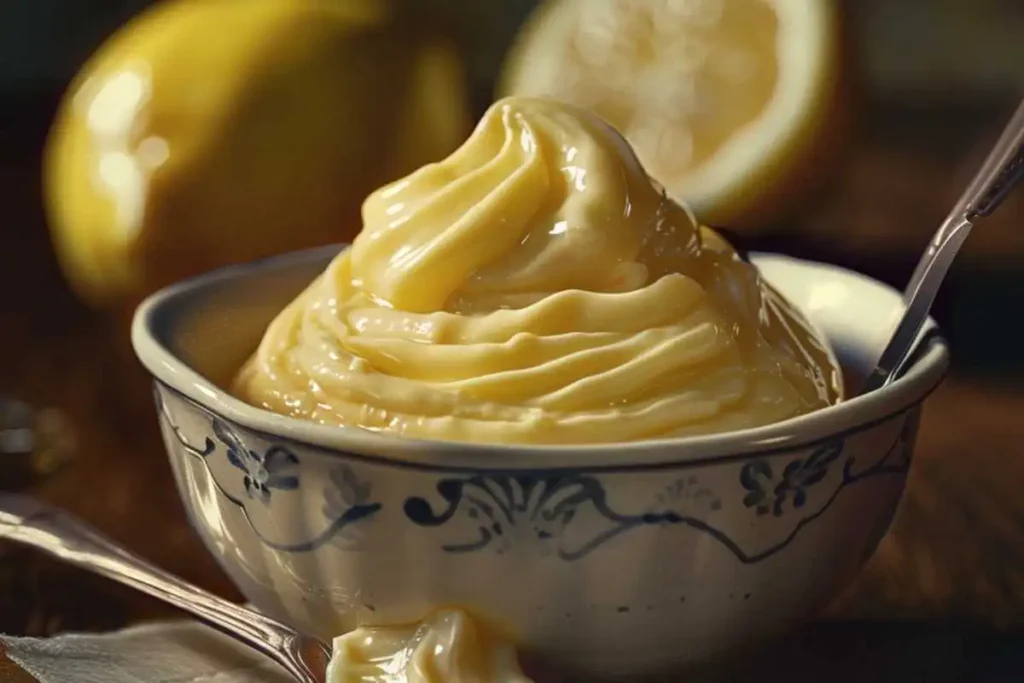Table of Contents
- Introduction
- What You Need to Know About Lemon Butter
- Essential Ingredients for Lemon Butter
- Step-by-Step Lemon Butter Recipe
- Creative Ways to Use Lemon Butter
- Storing and Preserving Lemon Butter
- Health Benefits and Nutritional Information
- Conclusion
- FAQ
Introduction
Welcome to your new favorite kitchen staple: the lemon butter recipe. This rich, zesty butter is a versatile condiment that can enhance everything from your morning toast to a gourmet seafood dinner. In this guide, we’ll walk you through the basics of what lemon butter is, its culinary uses, and why it might just become your go-to ingredient for adding a burst of flavor to your dishes. Whether you’re a seasoned chef or a curious home cook, this post will equip you with everything you need to know to make and use lemon butter effectively. So, let’s zest up our cooking game with some lemon butter goodness!
What You Need to Know About Lemon Butter
Understanding Lemon Butter
Lemon butter, also commonly referred to as lemon beurre, is a rich, creamy sauce or condiment made primarily from butter and fresh lemon juice, often enhanced with a touch of lemon zest. This delightful mixture marries the creamy, melt-in-your-mouth texture of butter with the sharp, tangy burst of citrus from lemons, creating a perfect balance of flavors that can elevate any dish it accompanies. Popular not only for its taste but also for its simplicity, lemon butter can be prepared in just a few minutes and with minimal ingredients, making it a favorite among home cooks and professional chefs alike.
Varieties of Lemon Butter
While the basic lemon butter recipe consists of butter and lemons, there are numerous variations that include additional flavors and ingredients to suit different dishes and preferences. Here are a few popular twists:
- Herb Lemon Butter: Incorporating herbs such as thyme, rosemary, or dill can introduce an aromatic quality that goes splendidly with roasted meats and vegetables.
- Garlic Lemon Butter: For those who adore a garlicky punch, adding minced garlic can transform the butter into a robust accompaniment for seafood and pasta.
- Spicy Lemon Butter: A dash of chili flakes or cayenne pepper can offer a fiery contrast to the lemon’s tartness, perfect for drizzling over grilled corn or stir-fried greens.
Each variation can be tweaked according to personal taste, making lemon butter a truly customizable component in your culinary arsenal.
Essential Ingredients for Lemon Butter
Key Ingredients Breakdown
To make a basic lemon butter, you’ll need the following ingredients:
- Butter: The base of the sauce, ideally unsalted to better control the overall saltiness of the dish.
- Lemons: Both the juice and zest are used. Fresh lemons are preferable for a vibrant flavor.
- Salt: A pinch to enhance the flavors.
It’s crucial to choose high-quality butter since it is the flavor carrier of the sauce, and organic, fresh lemons to ensure a potent, natural lemon flavor that isn’t overpowered by artificiality.
Optional Ingredients and Substitutes
While lemon butter is delightful in its simplest form, you can personalize it with various add-ins and substitutions:
- Add-Ins: Capers, shallots, or anchovies for added depth.
- Substitutes: For a dairy-free version, coconut oil or a vegan butter substitute can be used. Lime or orange zest and juice can replace lemon for a different citrus profile.
Step-by-Step Lemon Butter Recipe
Preparing Your Ingredients
Before diving into the actual cooking, it’s essential to prepare your ingredients properly to ensure the best results:
- Zesting and Juicing Lemons: Wash your lemons thoroughly before zesting to avoid any unwanted pesticides or wax. Use a fine grater or zester to get just the yellow part of the peel, avoiding the bitter white pith. Then, cut the lemons in half and juice them, straining out any seeds.
- Softening the Butter: Ensure your butter is at room temperature so it blends smoothly with the lemon juice without clumping.
Preparation is key, and having everything ready before you start cooking will make the process smoother and faster.
Cooking Process
Making lemon butter is a quick and simple process, but following these steps will help you achieve the perfect consistency and flavor:
- Melting the Butter: In a saucepan over low heat, melt the butter gently. Avoid letting it brown or burn, as this can alter the flavor of your lemon butter.
- Incorporating Lemon: Once the butter is melted, add the lemon juice and zest. Stir continuously over low heat for about one to two minutes. This gentle cooking helps the flavors meld together without causing the lemon juice to become bitter.
- Seasoning: Add a pinch of salt, taste, and adjust the seasoning as needed. If you’re using any additional ingredients like herbs or garlic, add them at this stage to infuse the butter with their flavors.
Troubleshooting Common Issues
Sometimes, making lemon butter can come with minor setbacks, but they’re easy to fix:
- Separation: If the sauce separates, it’s often due to the heat being too high. Remove the saucepan from heat and whisk vigorously to re-emulsify.
- Too Tangy: If the lemon flavor overwhelms, you can temper it by adding a bit more butter or a teaspoon of cream.
- Texture Issues: For a smoother texture, some cooks like to blend the finished lemon butter with an immersion blender.

Creative Ways to Use Lemon Butter
Best Pairings with Lemon Butter
Lemon butter’s bright flavor makes it an excellent match for a wide variety of dishes. Here are some of the best pairings:
- Seafood: Drizzle over baked or grilled fish, scallops, or shrimp.
- Vegetables: Toss with steamed or grilled vegetables like asparagus, broccoli, or carrots.
- Poultry: Brush over chicken or turkey before roasting to add a moisture and flavor.
Recipes Featuring Lemon Butter
Lemon butter can be more than just a condiment; it can be a key ingredient in many recipes:
- Lemon Butter Pasta: Toss with fresh pasta, parmesan, and cracked black pepper for a simple yet delicious meal.
- Lemon Butter Cake: Use it in the batter to give your cakes a moist texture and citrusy brightness.
- Lemon Butter Sauce for Pancakes: Serve as a topping for pancakes or waffles for a zesty breakfast treat.
Storing and Preserving Lemon Butter
Best Practices for Storage
To keep your lemon butter fresh and flavorful, follow these storage tips:
- Refrigeration: Store lemon butter in an airtight container in the refrigerator. It will typically last for up to two weeks if kept cold.
- Containers: Glass jars with tight-fitting lids are ideal as they don’t retain odors or flavors from other foods.
- Keeping it Covered: Ensure the lemon butter is covered or wrapped tightly to prevent it from absorbing any odors from other foods in the refrigerator.
Freezing and Reheating Tips
Lemon butter can be frozen for long-term storage:
- Freezing: Spoon the lemon butter into an ice cube tray or dollop onto a baking sheet lined with parchment paper. Once solid, transfer the cubes or dollops into a freezer bag or container. You can store it in the freezer for up to three months.
- Reheating: When ready to use, you can thaw lemon butter in the refrigerator overnight. For immediate use, gently reheat it in a saucepan over low heat or in a microwave on a low setting, stirring frequently to maintain a smooth consistency.
Health Benefits and Nutritional Information
Health Benefits of Lemon Butter
While lemon butter is indulgent, it also offers some health benefits thanks to its primary ingredients:
- Lemons: High in vitamin C, antioxidants, and flavonoids, which can help boost the immune system and reduce inflammation.
- Butter: Contains vitamins A, D, E, and K and is a source of butyric acid, which can aid in digestion and reduce inflammation in the intestines.
Nutritional Breakdown
A typical serving of lemon butter (about 1 tablespoon) generally contains:
- Calories: Approximately 102 calories
- Fat: 11.5 grams (mostly from butter)
- Carbohydrates: Less than 1 gram
- Protein: 0.1 grams
- Vitamin C: Provides about 2% of the daily recommended intake
It’s important to consume lemon butter in moderation as part of a balanced diet, especially for those monitoring their intake of fats and calories.
Conclusion
This rich, zesty lemon butter is not only easy to make but also incredibly versatile in its uses, from enhancing simple dishes to becoming a standout feature in more elaborate creations. By following the tips and variations provided, you can tailor this condiment to suit any meal, ensuring it becomes a staple in your culinary repertoire.
Have you tried making lemon butter at home? What’s your favorite dish to pair it with? Let us know about your experiences and share any additional tips in the comments below! If you enjoyed this recipe and guide, don’t forget to share it with friends and subscribe for more delicious recipes and cooking tips.
FAQ: All About Lemon Butter
What is lemon butter sauce made of?
Lemon butter sauce, commonly known as lemon beurre, consists mainly of two simple yet delicious ingredients: butter and fresh lemon juice. Cooks often add lemon zest to give the sauce a brighter, more citrusy flavor. You can season this sauce with a pinch of salt and occasionally enhance it with other flavorings like herbs, garlic, or spices to complement specific dishes.
Why is my lemon butter not thickening?
If your lemon butter isn’t thickening, it could be due to a few reasons. First, ensure that you’re using the correct ratio of butter to lemon juice; too much lemon juice can prevent the mixture from thickening. Secondly, the temperature might be too low; the butter needs gentle heat to melt and emulsify properly with the lemon juice. If these factors are in check, consider cooking the mixture for a slightly longer period, as the evaporation of liquid will help achieve a thicker consistency.
What can I do with excess lemons?
Excess lemons need not go to waste, as there are numerous creative and practical uses for them:
- Make lemonade or other lemon-based beverages: Freshly squeezed lemon juice is perfect for making refreshing lemonade.
- Preserve them: You can preserve lemons in salt or sugar, depending on your preference and culinary needs.
- Use in cooking or baking: Lemons can be used in a variety of dishes, from salads and marinades to cakes and cookies.
- Homemade cleaning products: Lemon’s natural acidity makes it effective for cleaning and deodorizing around the home.
- Freezing for later use: Lemon juice and zest can be frozen for later use in cooking and baking.
Why is my lemon butter grainy?
A grainy texture in lemon butter typically results from the butter re-solidifying, which can happen if the butter cools too quickly or if it’s mixed with lemon juice that’s too cold. To prevent this, ensure all ingredients are at room temperature before beginning to cook. Additionally, constant stirring and a gentle heat can help maintain an even temperature and smooth texture throughout the cooking process. If graininess occurs, gently reheating the sauce while whisking continuously can sometimes help to re-emulsify and smooth out the texture.
Print
Lemon Butter Recipe
- Total Time: 15 minute
Description
This recipe yields a rich, flavorful lemon butter that can brighten up any dish with its fresh lemony zest. Enjoy your cooking!
Ingredients
- 1/2 cup (115 grams) unsalted butter, softened
- 2 tablespoons fresh lemon juice
- Zest of 1 lemon
- 1/4 teaspoon salt
Instructions
- Prepare Ingredients: Start by zesting the lemon. Use a fine grater or zester to remove the zest, taking care to avoid the bitter white pith beneath the yellow skin. Juice the lemon until you have 2 tablespoons of juice.
- Mixing: In a medium bowl, combine the softened butter, lemon zest, lemon juice, and salt. Using a fork or an electric mixer on low speed, mix until all the ingredients are well incorporated and the mixture is smooth and creamy.
- Refrigeration: Transfer the lemon butter into a small bowl or container. Cover it and refrigerate for at least 1 hour to allow the flavors to meld and the butter to firm up slightly.
Notes
- Serving Suggestions: Lemon butter is fantastic on fresh bread, over cooked vegetables, with seafood like grilled salmon or shrimp, or as a finishing touch on steaks.
- Storage: Store lemon butter in the refrigerator for up to 2 weeks. For longer storage, you can freeze it in an airtight container for up to 3 months.
- Variations: Add herbs such as dill, thyme, or parsley for an herbed lemon butter variant, ideal for meats and vegetables.
- Prep Time: 10 minutes
- Cook Time: Chill Time: 1 hour
Nutrition
- Serving Size: About 8
- Calories: Approximately 102 calories per serving.
- Sugar: 0.1 grams
- Sodium: 73.7 mg
- Fat: 11.5 grams
- Saturated Fat: 7.3 grams
- Carbohydrates: 0.3 grams
- Fiber: 0.1 grams
- Protein: 0.1 grams
- Cholesterol: 30.5 mg
Keywords: Lemon Beurre, Lemon Butter Sauce, Citrus Butter
